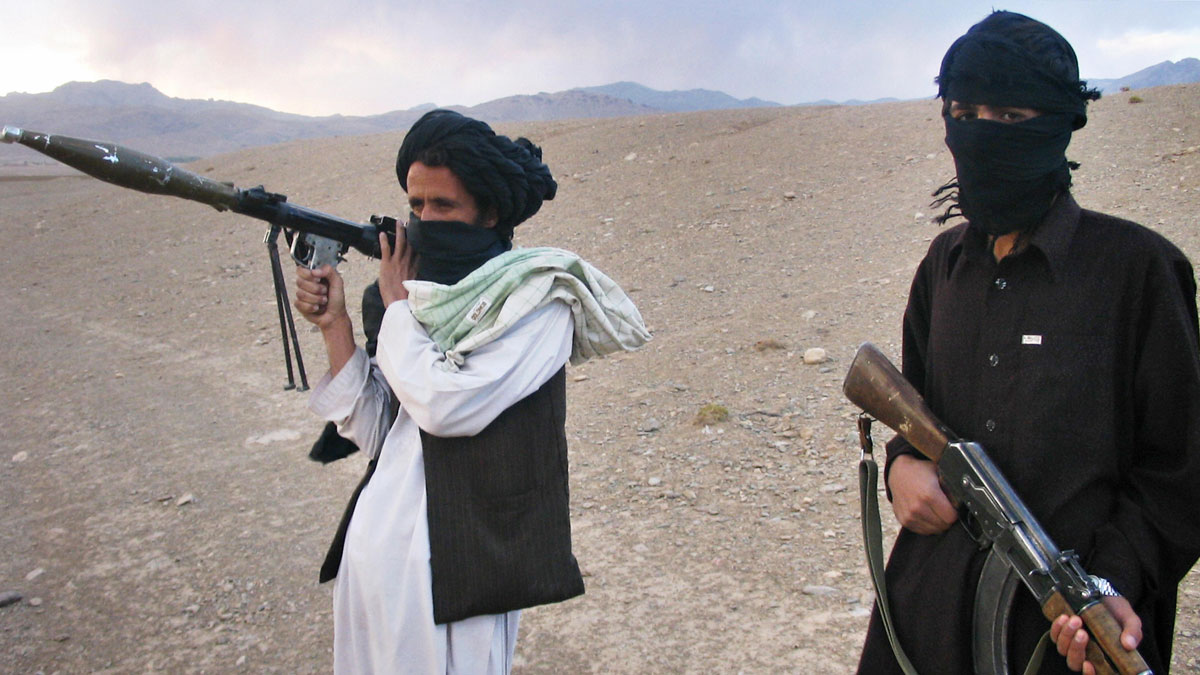Mullah Omar 'dead': what next for the Taliban and Afghanistan?
Confirmation of leader's death threatens peace process, as a power struggle intensifies within the Taliban

A free daily email with the biggest news stories of the day – and the best features from TheWeek.com
You are now subscribed
Your newsletter sign-up was successful
The Afghan government has confirmed reports that Taliban leader Mullah Omar died two years ago, news that is likely to threaten fragile peace talks as well as the future of the terrorist group.
Rumours of Omar's death have circulated for years, but a White House spokesperson said the US government believed that the latest report was "credible".
What it means for the Taliban
The Week
Escape your echo chamber. Get the facts behind the news, plus analysis from multiple perspectives.

Sign up for The Week's Free Newsletters
From our morning news briefing to a weekly Good News Newsletter, get the best of The Week delivered directly to your inbox.
From our morning news briefing to a weekly Good News Newsletter, get the best of The Week delivered directly to your inbox.
The apparent confirmation of his death comes at a turbulent time for the Taliban, which has splintered as conflicting ideologies have emerged.
"Different Taliban groups are breaking away from the central Taliban organisation," Graeme Smith, a senior analyst at the International Crisis Group in Kabul told Radio Free Europe. "His death is going to fuel the factionalism that we are already seeing."
The Taliban has also been struggling to keep its militants – many of whom were frustrated with the lack of interaction with their leader – from defecting to Islamic State and other rival Islamist groups, say experts.
If their leader is dead, the militants' religious vows of loyalty would be void, and they will "have no reason to stick it out anymore," Michael Kugelman, an Afghanistan expert with the Wilson Center in Washington, told Al Jazeera America. "[IS] should be very happy about this announcement," he said. "I think this could really drive up recruitment in Afghanistan and Pakistan."
A free daily email with the biggest news stories of the day – and the best features from TheWeek.com
The announcement will also intensify the battle for control within the Taliban. "There is already a nasty power struggle, " says Smith. "That will get more vicious after Omar's death."
Local reports suggest that the group's deputy, Mullah Akhtar Mohammad Mansur, has already been appointed as the new leader. But a senior Afghan Taliban commander has told Reuters that group's leadership was "at a crossroads" and resolving the succession issue may take time.
What it means for the peace talks
President Ashraf Ghani's has staked his political reputation on controversial negotiations aimed at ending decades of war with the group. Announcing Omar's death, the Afghan government said it believed the grounds for peace talks "are more paved now than before" and called on all armed opposition groups to "seize the opportunity” and join the peace process.
But there is growing confusion about the Taliban's willingness to enter into talks with the government. Earlier this month a statement purportedly from Omar expressed support for the negotiations, but the Taliban's official spokesman today said the group was "not aware" of the latest round of peace talks due to take place in Pakistan on Friday, indicating they would not take part.
Many have also questioned the timing of the government's announcements of Omar's death. "My sense is that someone wanted to sabotage the peace talks," says Kugelman. "Why would the Afghan government, which so deeply wants peace, make this announcement now? It's a mystery."
-
 The week’s best photos
The week’s best photosIn Pictures An explosive meal, a carnival of joy, and more
-
 The ‘ravenous’ demand for Cornish minerals
The ‘ravenous’ demand for Cornish mineralsUnder the Radar Growing need for critical minerals to power tech has intensified ‘appetite’ for lithium, which could be a ‘huge boon’ for local economy
-
 Why are election experts taking Trump’s midterm threats seriously?
Why are election experts taking Trump’s midterm threats seriously?IN THE SPOTLIGHT As the president muses about polling place deployments and a centralized electoral system aimed at one-party control, lawmakers are taking this administration at its word
-
 Epstein files topple law CEO, roil UK government
Epstein files topple law CEO, roil UK governmentSpeed Read Peter Mandelson, Britain’s former ambassador to the US, is caught up in the scandal
-
 Iran and US prepare to meet after skirmishes
Iran and US prepare to meet after skirmishesSpeed Read The incident comes amid heightened tensions in the Middle East
-
 Israel retrieves final hostage’s body from Gaza
Israel retrieves final hostage’s body from GazaSpeed Read The 24-year-old police officer was killed during the initial Hamas attack
-
 China’s Xi targets top general in growing purge
China’s Xi targets top general in growing purgeSpeed Read Zhang Youxia is being investigated over ‘grave violations’ of the law
-
 Panama and Canada are negotiating over a crucial copper mine
Panama and Canada are negotiating over a crucial copper mineIn the Spotlight Panama is set to make a final decision on the mine this summer
-
 Why Greenland’s natural resources are nearly impossible to mine
Why Greenland’s natural resources are nearly impossible to mineThe Explainer The country’s natural landscape makes the task extremely difficult
-
 Iran cuts internet as protests escalate
Iran cuts internet as protests escalateSpeed Reada Government buildings across the country have been set on fire
-
 US nabs ‘shadow’ tanker claimed by Russia
US nabs ‘shadow’ tanker claimed by RussiaSpeed Read The ship was one of two vessels seized by the US military